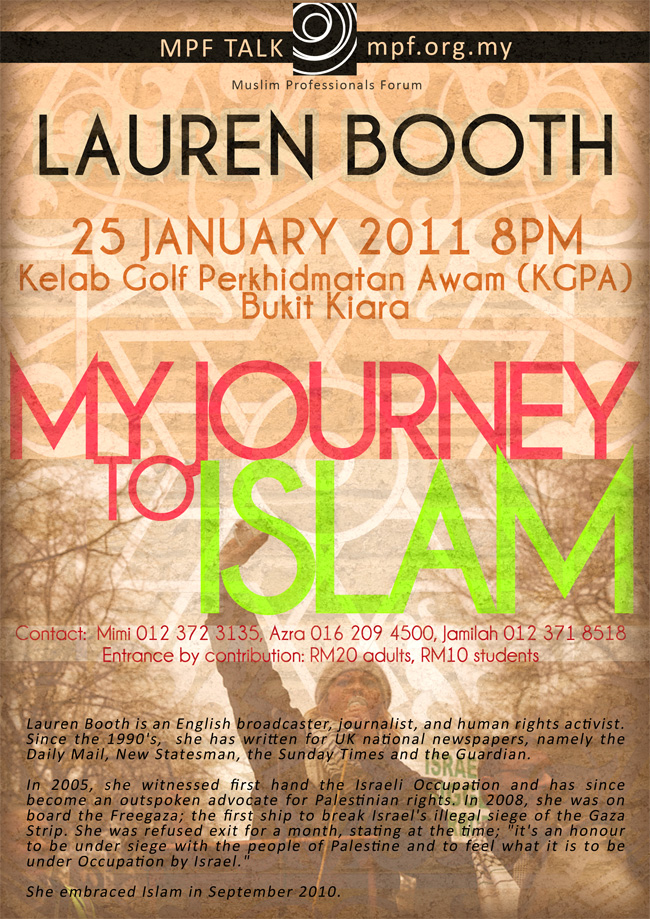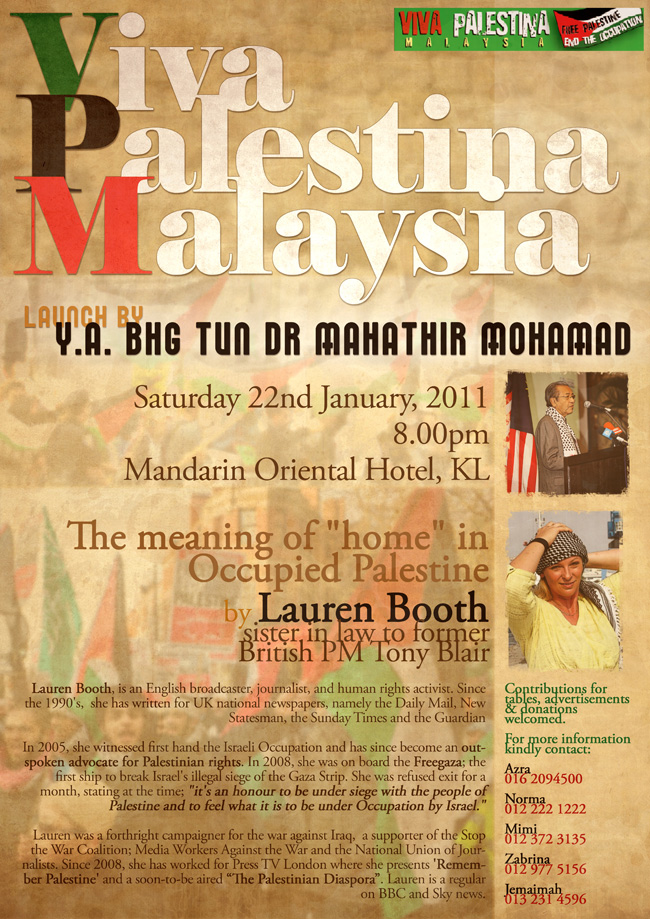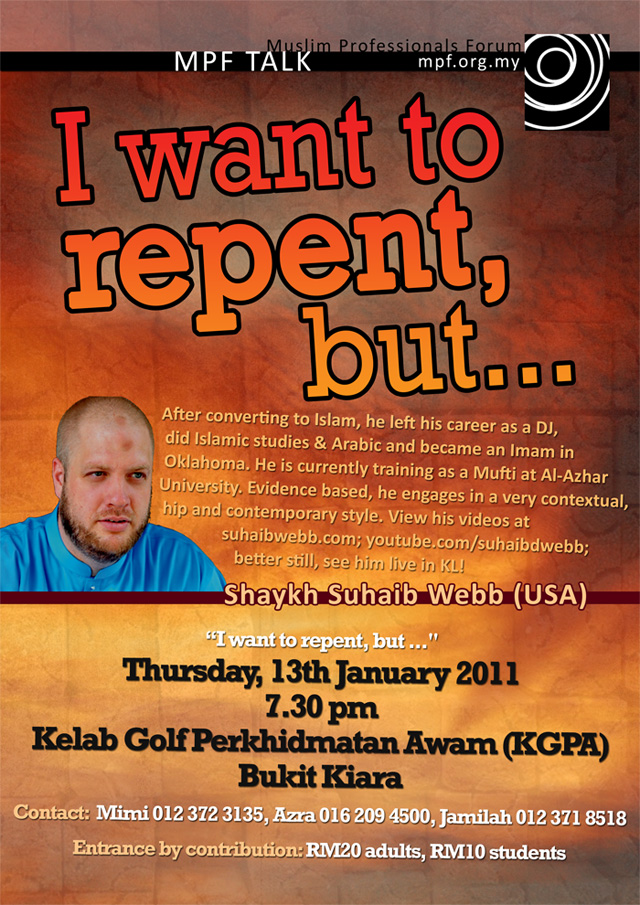All posts by MPF
Viva Palestina Malaysia Launch
MPF TALK: “I want to repent but…” (Suhaib Webb)
Diary of a Malaysian Doctor
Diary of a Malaysian Doctor
(right-click and ‘save as’ to download)
A collection of Dr. Musa’s (electronic) diary entries written during his involvement with Viva Palestina’s 5th Gaza Land convoy. Documenting the trials and trivialities of being involved with this human rights-championing adventure, this publication was compiled by Dr. Musa himself and Dr. Aly Mishal.
Viva Palestina Malaysia (post-convoy videos)
As has been publicized all throughout the internet and mainstream media, a considerable number of Viva Palestina Malaysia members joined the 5th Viva Palestina convoy to Gaza. A chosen few followed the trail all the way to Gaza, and now all of them have made it safely back home Alhamdulillah.
Here are a few videos of news clips taken from the TV post-convoy:
Substances and actions that nullify the fasting
http://papisma.org/fekahperubatan/index.php?s=injections#3e
3. Substances and actions that nullify the fasting
According to the Quran and the authentic Sunnah of the prophet (pbuh) three
actions nullify fasting: eating, drinking and sexual intercourse. Therefore,
the passing of any solid or liquid sybstance that can be described as food
or drink, in any quantity through the gullet would nullify fasting. Accord
ingly, the p.articipants agreed unanimously that the following do not
nullIfy fasting.
1. Eye and ear drops, and ear wash.
2. Nitroglycerine tablets placed under the tongue for the treatment of
angina.
3. Insertion into the vagina of pessaries, medical ovules, vaginal washes,
vaginal speculum, and doctor’s or midwife’s fingers during pelvic
examination.
4. Insertion of the urethroscope into man or woman radio-opaque media for
X-ray diagnosis or bladder irrigation.
5. Tooth drilling, extraction, cleaning or the use of mis-wak and
toothbursh, provided nothing is swallowed into the stomach, do not nullify
fasting.
6. Injections through the skin or muscle or joints or veins, with the
exception ofintravenous feeding.
7 .Blood donation or receiving blood transfusion.
8. Oxygen and anaesthetic gases.
9. All substances absorbed into the body through the skin, such as creams,
ointments, and medicated plaster.
10 .Drawing blood samples for laboratory testing.
11 .Catheter and media for arteriography of heart or other organs.
12 .Endoscopy for diagnostic or intervention purposes.
13. Mouth wash, gargle or oral spray, provided nothing is swallowed into
the stomach.
14 .Hysteroscopy or insertion of an intrauterine device.
15. Biopsy of the liver or other organs.
A majority ofparticipants added the following:
1. Nose drops, nose sprays, and inhalers.
2. Anal injections, anoscopes, or digital rectal examination.
3. Surgery involving general anaesthetic, if the patient decided to fast.
4. Machine or intraperitoneal renal dialysis.
5. Use of gastroscope, provided it does not entail the introduction of
liquids or other substances into the stomach.
On the conclusion of its business, the Seminar was pleased to express its
deeply-felt thanks and appreciation to His Majesty, King Hassan II of the
Kingdom of Morocco, for his kind support of the Seminar which was hosted by
the Kingdom of Morocco. The Seminar prays to God to grant His Majesty and
His Heir victory and glory, and the people of the Kingdom of Morocco
prosperity and progress. The Seminar further thanks His Majesty’s Government
and officials for their warm welcome and generous hospitality.
The Islamic Organisation for Medical Sciences wishes to express its sincere
thanks to all the participating organisa- tions, including Hassan II
Institute for Medical and Scientific Research on Rarnadhan, the ISESCO, the
Institute of Islamic Fiqh, Jeddah, and the World Health Orgarusation
Regional Office. The IOMS would also like to extend its thanks to all the
Islamic jurists, doctors and scientists who have contributed to the
successful outcome of this Seminar, praying to God to reward them in a most
generous and compassionate way. God’s peace and mercy be upon you
Viva Palestina 5 Convoy Log
Monday 20th September
The convoy was welcomed in the city of Valux-en-Velin, adjacent to Lyon, by the mayor, M Bernard Genin. The city has the distinction of being the only one in France to fly the Palestinian flag.
But not if the French government gets its way. The regional prefect, responsible for the central government administration of the area, has told the city that the flag has to come down.
‘I’ve written back to him to say that he’s welcome to try,’ responded the mayor, ‘if he can fight his way through the mass crowds who will defend it.’
The convoy left Paris early – the muster was 6am – after another night on the floor of the gymnasium. Most of the 85 had less than four hours sleep, but the road south was mainly motorway and the group, split into three elements, arrived at a service station outside Lyon shortly after 1pm. After a quick lunch provided by local supporters the convoy moved off first to the Hotel de Ville (town hall) in an ear-splitting cacophony of noise, horns honking and the sirens of the two Swedish ambulances screaming.
After the meeting with the mayor the convoy moved off again to the main square in Lyon, the Place Bellecour, parking the 36 vehicles in the middle of it and setting up a stage and amplification for a rally. Hundreds of people crowded around, dozens of postcards and posters were handed out and the organisers had to rebuff the appeals of dozens of people to come on the convoy to Gaza.
After another meal provided by VP local volunteers the convoyers were put up in a hotel, the first time they has slept on a mattress, between clean sheets since they set out.
Watch Press TV report on Convoy in Paris on You Tube at http://www.youtube.com/watch?v=opgaEe34hG0
Watch convoy at La Place de La Bastille in Paris at http://www.youtube.com/watch?v=FjVzDoujqOk
PRESS RELEASE: 12 Malaysians to participate in VIVA PALESTINA’s 5th Land Convoy ‘A Global Lifeline to Gaza’
Kuala Lumpur, 17th September 2010………The biggest ever contingent from Malaysia to participate in a gigantic land convoy left over the past 2 days to London. On 18th September 2010, they will depart London and join convoys from Casablanca and Doha, carrying supplies such as medicine, medical equipment, educational & building materials to Gaza.
Viva Palestina Malaysia (VPM) successfully raised funds to be a part of this 5th Land Convoy ‘A Global Lifeline to Gaza’. Our funds enabled the purchase of 6 vehicles which will be filled with desperately needed aid and this includes supplies for the construction of a school for orphans and a maternity hospital.
VPM members who will be participating in the ‘Global Lifeline to Gaza’ Convoy are:
Azra Banu
Siti Azura Dato Nordin Torji
Mohd Faisal Mohd Idrus
Abd Wahab Yahya
Rofazlin Jusoh
Mohd Yusof Ahmad
Azmi Katiman
Mohd Taupek Abd Rahman
Mohd Zin Kandar
Norazmi Talib
Dato Dr Musa Mohd. Nordin
Dato Adnan Mohd Tahir
The Malaysian contingent of 12 volunteers, including 2 ladies, would drive and co-drive the 6 vehicles. Ten (10) left for London on the 15th and 16th September to begin this month long road trip.
Dato Mohd Adnan Tahir, chairman of VPM and Dato Dr Musa Mohd. Nordin will meet the convoy in Damascus on 5th October. Joining them will be two crew members from TV3 Jaffry Azman & Azhar Shamsuddin
Our generous donors included FIMA & IMAM with RM55, 000; a local pharmaceutical company with RM110, 000; and Aqsa Sharif, an NGO affliated with VPM with RM165,000.
Additional funds came in through generous donations and sale of VPM paraphernalia at Masjid Negara, Masjid Wilayah and the Shah Alam pasar tani. The association of wives and female staff of Telekom Malaysia contributed RM5, 000. Anonymous donors banked various amounts direct into VPM’s account. VPM is very grateful to everyone who has made possible the first phase of this global mission.
We now enter the second phase; the actual road trip. It’s going to be a long and hard few weeks for our volunteers as they drive the aid laden vehicles from London through France, Italy, Greece, Turkey, Syria, Egypt and God willing into Gaza by October 10th. We ask all Malaysians to pray for the safe, speedy and successful delivery of this aid to the besieged people of Gaza and the safe return of all our volunteers.
Viva Palestina Malaysia is proud to be a part of this momentous event and join the growing voices around the world to proclaim:
FREE PALESTINE
END THE OCCUPATION
For further info please contact:
Yuzaidi 012 273 4353
Siti Jamilah 012 371 8518
Noraini 012 277 1710
It is extremely important that this international convoy is supported and highly publicised. Apart from the delivery of much needed humanitarian aid & highlighting the blockade’s damaging effects, this convoy is the 5th in a series of land convoys and sea flotillas to unrelentlessly make a loud moral statement on Israel’s horrendous crimes in Gaza and to inspire international public opinion to END THE SIEGE. In the words of Nelson Mandela, “justice to the Palestinians, has become the greatest moral issue of our time”
Where world leaders have failed miserably, civil society must take over the initiative to END THE OCCUPATION. To paraphrase Robert Fisk, “Western leaders are too cowardly to help save lives. It is a fact that it is ordinary people, activists, call them what you will, who now take decisions to change events.”
VPM calls upon all peace loving Malaysians to support and widely publicise this humanitarian mission. The land stealing, ethnic cleansing and inhumane treatment of an entire people based on the racist ideology of Zionism is abominable. Freeing Palestine is not simply about restoring a small piece of territory between the Mediterranean Sea and the Jordan River, but is all about fighting for the treasured values of peace, freedom, social justice and democracy.
Let us all together be part of this peaceful civil society initiative to FREE PALESTINE AND END THE OCCUPATION, and galvanise our families and friends to hop on board this month long “LAND CONVOY TO GAZA”.
VIVA PALESTINA MALAYSIA, formerly known as COMPLETE (COALITION OF MALAYSIAN NGOs AGAINST PERSECUTION OF PALESTINIANS) is a coalition of more than 50 NGOs that cuts across racial, religious and political lines in Malaysia. This coalition was formed after the recent escalation of Israel-Palestine conflict that culminated in the invasion of Gaza. We intend to work closely with foreign NGOs with similar objectives, and together as a worldwide united front of NGOs, act as an effective pressure group to governments, pushing for a just and comprehensive resolution of the conflict.
VIVA PALESTINA MALAYSIA’s VISION:
To effectuate a just, equitable, prompt and sustainable resolution to the conflict in Palestine.
http://www.vivapalestina-my.org
Radical reform and Tariq Ramadan
Dr Ahmad Farouk Musa
Courtesy of harakahdaily.net/en
What is perhaps clear to the perceptive minds of many rational thinking Muslims is that the challenge facing Muslims currently is not merely one of reformulating democratic principles in an Islamic idiom, but also of reforming and adapting Islam’s ethical and legal percept to the practice of democracy.
About a century ago, prospects appeared fairly hopeful that Islam would find a way to devise a system between faith and modernity.
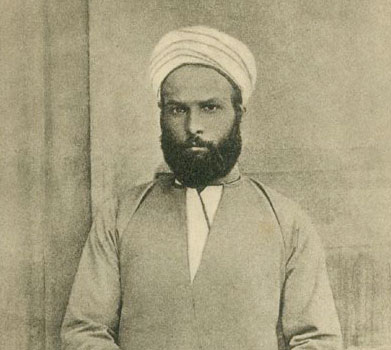 Great theologians such as Muhammad Abduh (left) argued that while certain aspects of religion would remain immutable especially those concerning ibādah (worship) and aqīdah (creed); issues of governance should be addressed through human reason since they fall under the realms of al-mutaghaiyyirat (the changing).
Great theologians such as Muhammad Abduh (left) argued that while certain aspects of religion would remain immutable especially those concerning ibādah (worship) and aqīdah (creed); issues of governance should be addressed through human reason since they fall under the realms of al-mutaghaiyyirat (the changing).
It was Abduh’s reformist agenda and rationalism then, with its emphasis on reason (‘aql) and God’s justice (‘adl), which seemed as if it might be able to ground a dynamic Islamic theology capable of successfully meeting the challenges of modernity.
Alas, these promising attempts were thwarted by the rise of the literal Salafis and its ramifications.
Ath-thawabit (the Immutable) and al-mutaghaiyyirat (the Changing)
One of the most prominent Islamic scholars and intellectuals who is at the forefront in combating the literalists is non-other than Tariq Ramadan (right), the grandson of the founder of The Muslim Brotherhood, Hasan al-Banna.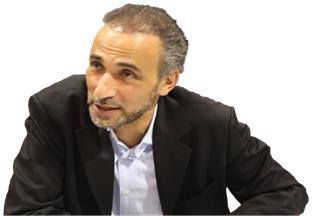
Tariq Ramadan in his book Radical Reform asserted that the contemporary literalist approach puts into evidence three reductions or confusions, which restrict interpretation and in effect make it impossible to give adequate answers to contemporary challenges.
The first reduction is the failure to distinguish between that which, in the Revelation, is immutable and that which is subject to change in accordance to the temporal evolution and environmental changes.
While injunctions and prohibitions may be absolute and immutable in themselves, their concrete implementation may take different or changing forms according to the environment.
At social and cultural level for example, while the principle of modesty and its rules is established in Islamic ethics, its implementation in any given society has always had to take into account local cultures and habits. By failing to distinguish sufficiently between the immutable and the changing, contemporary literalists exert a series of other confusions involving grave consequences.
Between Principles and Models
The effect of this confusion leads to a second reduction involving failure to differentiate between principles and models. While principles can be absolute and eternal, their implementations in time or in history are relative, changing and in constant mutation.
Thus, the principles of justice, equality, rights and liberty that guided the Prophet remain the references beyond history, but the model of the city of Madinah is a historical realization linked to the realities and requirements of his time.
So, while we try to remain faithful to the principles, we cannot merely imitate or duplicate a historical model that no longer corresponds to the requirements of our own.
This same temptation can be found in some contemporary Salafi trends that advocate an almost exclusive political commitment, by trying to return to a specific historical political structure at the expense of the principles that govern such community.
Ramadan asserted that the essence in being faithful to the Prophet is not in imitating their behaviour, or trying to reproduce their historically dated achievements, but it lies in recapturing their spiritual strength and intellectual energy to achieve the most cogent social model for our time, as they did for theirs. It is not to repeat its form but to grasp its substance, spirit and objectives.
Between Aqidah or Ibadah and Mu’amalah
The third reduction according to Ramadan is the failure to distinguish between legal methodology linked to the aqīdah (creed) and the ibādah (worship); to that which deals with mu’amalah (social affairs).
While in the two spheres of aqīdah and ibādah, we are confronted with teachings that are determined by Revelation; the sphere of mu’amalah is exactly the opposite, where everything is allowed except that which is explicitly forbidden by Revelation.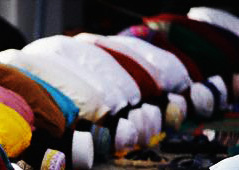
The basic principle, in social affairs, is permissible (al-asl fil-ashyā al-ibāha), thus opening to humankind the fields of rationality, creativity and research. As long as they remain faithful to principles, any social, economic or political productions are not bid’ah (despicable innovations from the viewpoint of religion) but instead should be viewed as achievements for the welfare of humankind.
This threefold confusion and reduction has major consequences on contemporary Islamic thought and tends to stem any reform of the reading, understanding and implementation of the texts in a new historical context. Generally, it results in oversimplifying the message of Islam and eventually contradicts its timeless eternal objectives.
The Role of Ijtihad
History has shown that, since the day when religious scholars decided to ‘close the door of Ijtihād’ (independent reasoning) around the thirteenth century, the Muslim world has been but a static civilization, confined to the slavish exposition of the ideas of their predecessors, making every small step forward a major struggle.
Islah (reform) and tajdid (renewal) have been choked out of Muslim lands and Muslim reformers and thinkers have been either vilified or persecuted, effectively blocking the reformation that would have accommodated the religion and its believers to modernity.
This is where Tariq Ramadan emphasized on the need for ijtihād in pursuing the reform agenda.
According to him, ijtihād has always consisted in promoting a critical reading of texts when they were open for interpretation, or when the texts were silent about a particular situation, or when the context imperatively needed to be taken into account in the implementation of texts, even though the texts appear to be qat’ie (explicit).
The legitimacy and necessity of such critical readings are rarely questioned, except of course by those following the narrowest literalist trends.
The dialectical relationship between text and context is an appeal to human intelligence to find a way to be faithful through the merging of two levels of knowledge, that of the eternal principles of practice and ethics and that of the ever-changing realities of human societies.
Reform: An adaptation or transformation
All reformist schools agreed that Muslim legal scholars must think through and reconsider fiqh (Islamic jurisprudence) in light of the new challenges of their time. Ijtihād was considered, as Muhammad Iqbal put it, as the natural instrument, offered by the Islamic legal tradition, to achieve such renovation and renewal.
Due to globalization, fuqahā’ (legal scholars) are now beset with questions linked to the viability of Islam’s prescription in this new age.
The world is moving on and legal scholars are forever lagging behind that constantly accelerating progress that seems to escape them.
Hence, Ramadan proposes, a transformative approach rather than adaptive approach. Transformation reform, according to him is more exacting, in that it adds a further step, and condition, to the whole process. It aims to change the order of things in the very name of the ethics it attempts to be faithful to. In other words, to add a further step going from the texts to the context, to act on the context and improve it, without ever accepting its shortcomings as matters of fate.
A radical reform
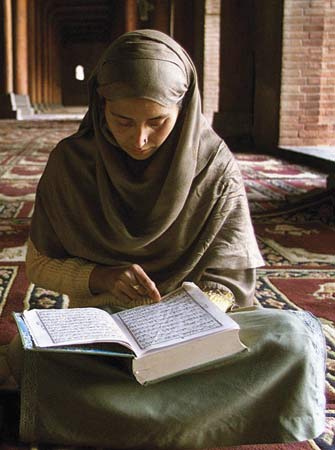 This further step requires that a fundamental condition be fulfilled. That is acquiring deep knowledge of the context, and fully mastering all areas of knowledge including the human sciences. So a radical reform aiming to change the world, as well as providing a new reading of the texts, cannot rely on ulamā’ an-nusus (text experts) only, but requires a full and equal integration of all available human knowledge.
This further step requires that a fundamental condition be fulfilled. That is acquiring deep knowledge of the context, and fully mastering all areas of knowledge including the human sciences. So a radical reform aiming to change the world, as well as providing a new reading of the texts, cannot rely on ulamā’ an-nusus (text experts) only, but requires a full and equal integration of all available human knowledge.
In this respect, the need is urgent to widen the circle of expertise and call on ulamā’ al-waqi’ (context specialists) and no longer only text specialists or ulamā’ an-nusus.
Radical reform is an appeal to reconsider the sources to their necessary reconciliation with the world, its evolution and human knowledge. Thus reconciling conscience with science is imperative.
There will definitely have to be debate areas, and there will be disagreements. But the contemporary Muslim conscience has to transform this turmoil of converging or contradictory ideas into an energy of debate, renewal and creativity that produces faithfulness as well as serene coherence at the heart of our modern age and its challenges.
A ‘Muslim Martin Luther’
Tariq Ramadan has emerged as one of the foremost voices of reformist Islam. His belief in an integrative approach, one that marries a reinvigorated theological, value-based approach with a spiritually realistic understanding of contemporary problems is an important recipe for true reform.
And his insistence that as the world continues to change, there is a requirement for a second look at the Qur’ān and other Islamic texts is consistent with the spirit of reform and renewal.
His call for this rereading of Islamic texts because of the many misconceptions within the Islamic communities, to some extent resembles Luther’s claim to return to the supposedly “pure text”, freed from its many accumulated misconceptions.
However, while Luther’s rereading liberated Christian scripture from the Church’s monopoly and opened an avenue for its translation into all European languages, Ramadan’s endeavour has yet to be embraced fully by the Muslim themselves, the majority of whom are still trapped in the traditionalist-salafi-modernist polemics and discourse.
